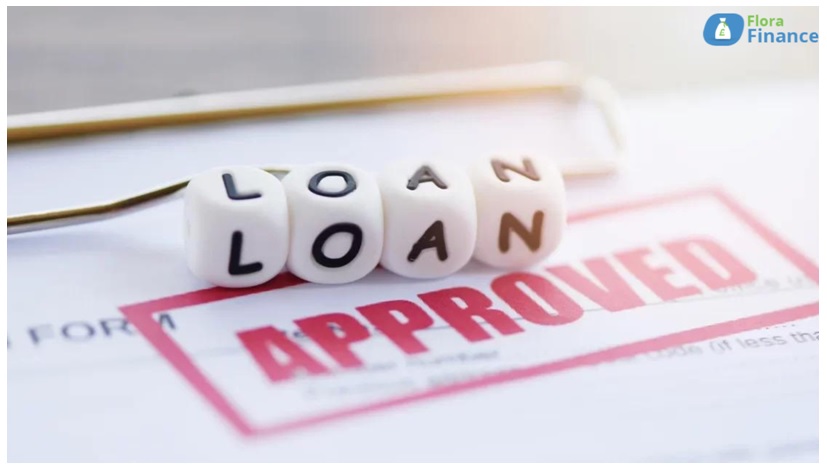Financial challenges can feel like being stuck in a rut, especially when dealing with a less-than-ideal credit score. However, there’s hope on the horizon with bad credit loans. These financial tools offer a pathway to a fresh start, helping individuals overcome past setbacks and move towards a brighter economic future. A credit score functions like a financial report card, signalling your trustworthiness to potential lenders. Yet, unforeseen circumstances can occasionally trigger missed payments, defaults, or other adverse entries on your credit report, culminating in a diminished credit score. However, even with bad credit, avenues for financial assistance remain open.
The Purpose of Bad Credit Loans
Bad credit loans are a crucial support system for individuals who might be ineligible for conventional loans because of their credit background. Tailored for those with poor credit scores, these loans provide essential financial aid when other avenues are inaccessible.
Types of Bad Credit Loans
When faced with financial difficulties and a less-than-ideal credit score, exploring the various types of bad credit loans can provide a path forward. Here are some standard options:
Secured Loans:
- Secured loans necessitate collateral, like a vehicle or property, to guarantee the loan. This collateral diminishes the risk for lenders, thereby increasing the likelihood of approval, particularly for individuals with poor credit.
- Secured loans generally have lower interest rates than unsecured loans, owing to the decreased risk assumed by lenders. Additionally, borrowers may have access to higher loan amounts.
- Failing to meet the obligations of a secured loan can lead to the forfeiture of the collateral, underscoring the importance of making punctual payments to mitigate this potential risk.
Unsecured Loans:
- In contrast to secured loans, unsecured loans do not necessitate collateral. Instead, lenders assess and approve unsecured loans solely based on the borrower’s creditworthiness.
- Unsecured loans provide flexibility and accessibility to individuals without assets to use as collateral. They can be used for various purposes, such as debt consolidation or emergency expenses.
- Because of the elevated risk for lenders, unsecured loans frequently carry higher interest rates and more stringent eligibility requirements. Individuals with poor credit may require assistance in obtaining favourable terms.
Payday Loans:
- Payday loans are brief financial arrangements intended to address expenses until the borrower’s subsequent payday. They are typically small-dollar amounts and are repaid in full, along with fees, on the borrower’s next payday.
- Payday loans offer swift access to funds for individuals with urgent financial obligations, like unforeseen bills or emergencies.
- Payday loans are expensive because they frequently have excessively high interest rates and fees. If borrowers cannot repay the loan by the due date, they risk becoming trapped in a cycle of debt.
Installment Loans:
- Instalment loans involve borrowing a fixed amount of money and repaying it over time through scheduled payments or instalments.
- Instalment loans offer predictability and stability, with fixed monthly payments that make budgeting more manageable for borrowers. They can be used for various purposes, from home repairs to major purchases.
- While instalment loans may have more favourable terms than payday loans, borrowers with bad credit may still face higher interest rates and stricter eligibility requirements. Before committing to an instalment loan, it’s essential to assess the affordability of monthly payments.
Benefits of Bad Credit Loans
Despite the challenges of having a less-than-perfect credit score, bad credit loans offer several advantages that can provide much-needed financial relief. Here are some key benefits:
Accessibility:
- Bad credit loans are specifically tailored to individuals with poor credit histories, providing access to funds when traditional lenders may turn them away.
- Poor credit can restrict your borrowing avenues, whether from past financial missteps or unexpected events. However, bad credit loans fill this void by helping individuals in need, guaranteeing that financial aid remains within reach for everyone, irrespective of their credit score.
Flexibility:
- Bad credit loans serve multiple purposes, from consolidating debt to covering emergency expenses, medical bills, or home repairs.
- Unlike some specialised loans restricted to specific uses, bad credit loans give borrowers the flexibility to address their most pressing financial needs. Whether you need to cover unexpected car repairs or consolidate high-interest debt, a bad credit loan can offer the financial flexibility you require.
Opportunity for Improvement:
- Responsibly managing a bad credit loan can help individuals rebuild their credit history and improve their credit score.
- While having bad credit may feel like a financial roadblock, it’s not the end. Bad credit loans allow borrowers to demonstrate their creditworthiness by making timely payments and fulfilling their loan obligations. With each successful repayment, borrowers can gradually rebuild their credit and regain the trust of lenders.
Quick Approval Process:
- Many bad credit loan providers offer quick approval processes, allowing borrowers to access funds promptly when needed.
- In times of financial urgency, there are other options than waiting weeks for loan approval. Bad credit loans often feature expedited approval processes, ensuring that borrowers can receive the funds they need promptly. This quick turnaround time can make all the difference when facing emergencies or unexpected expenses.
Potential for Lower Interest Rates:
- By managing a bad credit loan responsibly and enhancing your credit score, you could become eligible for reduced interest rates on subsequent loans.
- Although bad credit loans may start with elevated interest rates because of the perceived risk associated with lending to individuals with poor credit, there is a potential for improvement over time. Through diligent repayment and responsible financial management, borrowers can demonstrate their creditworthiness and qualify for lower interest rates on future loans, saving money in the long run.
Considerations Before Applying:
While bad credit loans offer numerous benefits, it’s essential to approach them with caution and consideration.
- Interest Rates: Bad credit loans often come with higher interest rates than traditional loans, so it’s crucial to assess whether the cost of borrowing is manageable.
- Repayment Terms: Review the repayment terms carefully, including the loan duration and monthly payments, to ensure they align with your financial situation.
- Impact on Credit Score: While responsible repayment can improve your credit score, defaulting on a bad loan can further damage your credit history.
- Alternative Options: Explore alternative options, such as credit counselling, debt management plans, or seeking assistance from friends and family, before committing to a bad credit loan.
Conclusion:
Bad credit loans provide a beacon of hope for individuals navigating financial challenges with less-than-perfect credit scores. By understanding the options available, weighing the benefits and considerations, and responsibly managing these loans, individuals can pave the way to a fresh start and reclaim financial stability.




